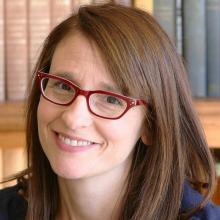Dublin Core
Title
Description
In the interview, Chappell discusses her experience as the child of a military officer and how she chose a university to attend. She continues to describe her undergraduate studies, a stint as an actress on an internship, and how she chose her graduate program. She then details her field of study, focusing on inequality and welfare in the United States, and the books she has written on the topic. From there, she backtracks to explain how she ended up working at Oregon State University as an associate professor of history, the difficulties of the academic job market, and how she structures and teaches her history classes.
She then shares her opinions on the shift from History as its own department to History as part of the School of History, Philosophy, and Religion. She explains that the change was meant to save money and foster interdisciplinary collaboration, but ended up doing neither. She also critiques another organizational shift away from department chairs in favor of school directors.
Chappell then goes in depth about the OSU faculty union, United Academics of Oregon State University. She first describes how it began and how small organizing events grew to where the organization was able to conduct a card check to become officially unionized. She also describes some of the issues tackled by the union and changes that were made, mainly in regards to contingent labor. She recalls a 28-hour negotiation that the union conducted over Zoom in 2020, and then dives into the impact of the COVID-19 pandemic on OSU faculty.
The interview continues with Chappell describing her life during the pandemic and how she both lives and teaches while quarantining. She finishes the interview by revealing that she is working on a new book and telling a story about her experiences collecting research for it at the Wisconsin Historical Society.
